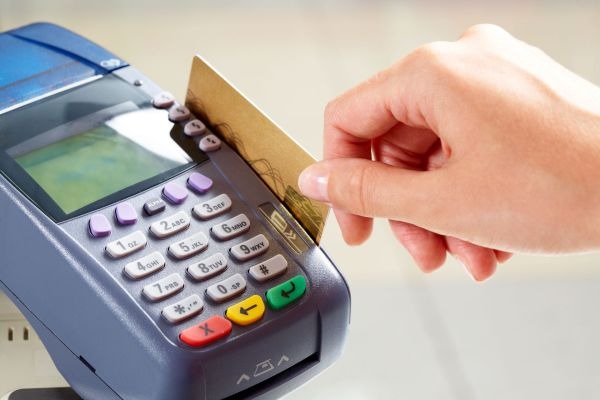Tripoli—Tripoli—Electronic payments in Libya have witnessed an unprecedented increase in a relatively short period to reach 20 billion dinars, with more than 70,000 points of sale (POS) and four million users, according to Alaeddin Khemaira, the CEO of Tadawul Tech.
This constitutes an important development businesswise and in terms of modernizing the banking system in Libya. “In 2020, operations on the national distributor did not exceed 3 billion dinars, with hundreds of thousands of users and a few thousand points of sale,” Mr. Khemaira said as quoted by Al Jazeera Net.
Khamira indicated that the recent measures taken by the Central Bank of Libya (CBL) ensure the growth of the volume of transactions via electronic payment by more than 60%, which may lead to an increase in the total annual movements from 20 billion dinars the year 2024 to more than 30 billion in 2025.
In the context of benefiting from electronic payment tools, the governor of the CBL obligated banks to take the necessary measures to activate bankcards on the e-commerce platform managed by the Muamalat Financial Services Company.
In November, the CBL decided to reduce commissions on the health, medicine, and food sectors by 73 per cent, to become 1 per cent instead of 3.75 per cent; this is in addition to reducing commissions in the remaining sectors by 60%, to become 1.5 per cent instead of 3.75.
In addition, the CBL agreed with the Muamalat Financial Services Company to facilitate the procedures for granting points of sale to those dealing in commercial and service activities, and those who practice commercial professions on their own account, along with the provision of instant payment services free.
Meanwhile, the Director of the Research and Statistics Department at the CBL, Ali Abu Salah, maintains that electronic payment is the most important axis in the CBL’s comprehensive strategic plan, through developing electronic payment systems and launching smart cards, according to Al Jazeera Net.
For the plan to work, the Libyan government must facilitate the registration of retail traders and simplify the procedures leading to obtaining the necessary licenses to conduct their business, Abu Salah said. This is in addition to exempt them from taxes partially or completely for a given period of time, and overlook the functional duplication in small activities between the public and private sectors.
“Imposing the presence of an electronic payment method when obtaining or renewing commercial licenses would indeed support the spread of electronic payment, and the government must impose electronic collection as the only payment channel to accept government payments,” he added. (The dollar is equivalent to 4.9 dinars), according to Alaeddin Khemaira, the CEO of Tadawul Tech.
This constitutes an important development businesswise and in terms of modernizing the banking system in Libya. “In 2020, operations on the national distributor did not exceed 3 billion dinars, with hundreds of thousands of users and a few thousand points of sale,” Mr. Khemaira said as quoted by Al Jazeera Net.
Khamira indicated that the recent measures taken by the Central Bank of Libya (CBL) ensure the growth of the volume of transactions via electronic payment by more than 60%, which may lead to an increase in the total annual movements from 20 billion dinars the year 2024 to more than 30 billion in 2025.
In the context of benefiting from electronic payment tools, the governor of the CBL Naji Issa obligated banks to take the necessary measures to activate bankcards on the e-commerce platform managed by the Muamalat Financial Services Company.
In November, the CBL decided to reduce commissions on the health, medicine, and food sectors by 73 per cent, to become 1 per cent instead of 3.75 per cent; this is in addition to reducing commissions in the remaining sectors by 60%, to become 1.5 per cent instead of 3.75.
In addition, the CBL agreed with the Muamalat Financial Services Company to facilitate the procedures for granting points of sale to those dealing in commercial and service activities, and those who practice commercial professions on their own account, along with the provision of instant payment services free.
Meanwhile, the Director of the Research and Statistics Department at the CBL, Ali Abu Salah, maintains that electronic payment is the most important axis in the CBL’s comprehensive strategic plan, through developing electronic payment systems and launching smart cards, according to Al Jazeera Net.
For the plan to work, the Libyan government must facilitate the registration of retail traders and simplify the procedures leading to obtaining the necessary licenses to conduct their business, Abu Salah said. This is in addition to exempt them from taxes partially or completely for a given period of time, and overlook the functional duplication in small activities between the public and private sectors.
“Imposing the presence of an electronic payment method when obtaining or renewing commercial licenses would indeed support the spread of electronic payment, and the government must impose electronic collection as the only payment channel to accept government payments,” he added. (The dollar is equivalent to 4.9 dinars)
